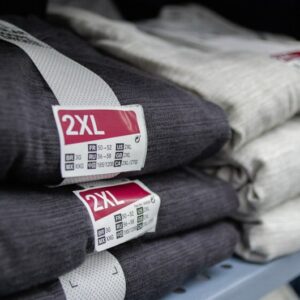
Brushing your teeth every day is an important practice that helps to keep your teeth strong and healthy. However, one of the common questions that dentists have to deal with every day is: Are you supposed to rinse after brushing your teeth?
While it makes sense to rinse your mouth with water after brushing to remove the excess toothpaste in your mouth, many dentists say it is not the right thing to do. This article explains this concept in more detail.
Why You Shouldn’t Rinse Immediately After Brushing Your Teeth?

Almost everyone rinses their mouth with water immediately after brushing to get rid of the excess toothpaste in their mouth. They do this because toothpaste contains chemicals that shouldn’t be ingested. Rinsing your mouth also helps to remove any leftover bacteria in your teeth.
But although these reasons make sense, still dentists advise against rinsing your mouth immediately after brushing. One of the main reasons why it’s not advisable to rinse your mouth immediately after brushing is the fact that water will wash away the important fluoride in the toothpaste.
Fluoride is an important mineral that protects your teeth and enamel as well as promotes the development of adult teeth in children.
This mineral also helps to reduce the level of acidity in your mouth, thus protecting your teeth against cavities. When you rinse your mouth with water immediately after brushing, you get rid of this crucial mineral. But does it mean that you shouldn’t rinse your mouth after brushing?
Although it is important to rinse your mouth after brushing, you should take a moment between brushing and rinsing to give the fluoride enough time to work on your teeth. That way, you will enjoy healthier, stronger, and cleaner teeth. Your teeth will also be able to withstand cavity and tooth decay caused by high levels of acidity in your mouth.
When you are rinsing your mouth, you should use warm water, especially if your teeth are highly sensitive to cold water. Better yet, you should use less toothpaste to brush your teeth, especially if you do not want to have excess toothpaste left in your mouth. That way, you can easily avoid rinsing your mouth after brushing.
So, instead of covering the entire toothbrush with toothpaste, just use a pea-size amount. This reduces the amount of toothpaste left in your mouth, eliminating the need to rinse your mouth. If you can’t stand the taste of toothpaste in your mouth, try different flavors until you find the one that pleases you.
You may also find gel-based toothpaste quite useful because it is resistant to water. With this type of toothpaste, you can rinse your mouth without washing away fluoride. If you are susceptible to cavities and tooth decay, you should never rinse your mouth after brushing.
According to Oral Health Foundation, you should just spit out any excess saliva or toothpaste after brushing instead of rinsing your teeth. It also recommends that you leave the fluoride on your teeth as you go about your day, and avoid eating or drinking anything for at least 10 minutes after brushing.
How Long Should You Take to Rinse Your Mouth After Brushing?

Although there aren’t many medical studies to compare the results of rinsing your mouth right after brushing or waiting some time in between, it is good to be on the safe side. Dentists advise you to wait about 20 minutes after brushing your teeth to rinse your mouth with water or use mouthwash, especially if it doesn’t have fluoride or contains alcohol.
Dental experts also advise you not to use mouthwash for at least 30 minutes after brushing your teeth, especially if you use fluoride toothpaste. Mouthwash can wash away the fluoride left in your mouth after brushing.
Are There Risks of Not Rinsing Your Mouth After Brushing?

As mentioned above, it is completely safe not to rinse your mouth after brushing your teeth, especially if you do not use excess toothpaste. However, leaving excess toothpaste in your mouth can have some side effects. Ingesting large amounts of toothpaste or any other dental product with fluoride can be risky.
Swallowing too much fluoride can cause:
• Nausea
• Diarrhea
• Abdominal pain
Nevertheless, these side effects are very rare, especially if you use only a pea-sized amount of fluoride toothpaste to brush your teeth.
Furthermore, these complications are only likely to happen when children swallow large amounts of fluoride dental products designed for adults, or if the fluoride products are used incorrectly. It is not easy for a healthy adult to suffer from any level of fluoride toxicity just by swallowing a small amount of toothpaste now and then.
Fluoride and Children
According to the American Dental Association, children under the age of three can use fluoride toothpaste as soon as they get their first tooth. However, as the child’s parent or guardian, you should only smear a rice grain-sized amount of fluoridated toothpaste on their toothbrush. Also, the child should rinse their mouth right after brushing.


